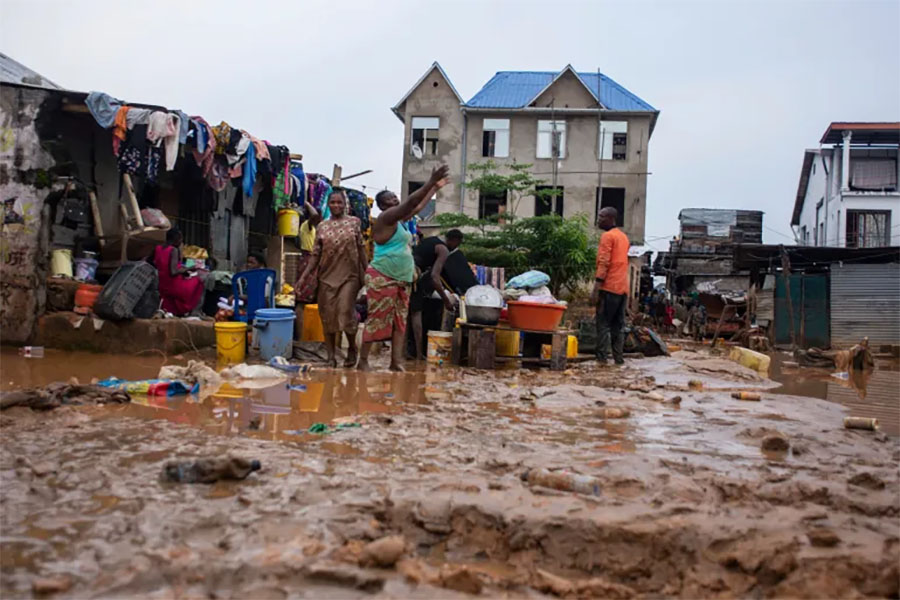
Photo Credit: Getty Images
Floods caused by torrential rains have killed at least 33 people in Kinshasa, the capital of the Democratic Republic of Congo. President Félix Tshisekedi has called a government crisis meeting and pledged support to victims. Desperate residents are trying to flee the floodwaters by wading, swimming or paddling to safety in homemade canoes.
The city is home to 17 million people and sits on the Congo river, which is one of the biggest in the world and stretches across the country. Flooding is common - the river recently reached its highest level in six decades.
Parts of the capital are prone to soil erosion and in recent years the Congolese president has warned that the climate crisis is making flooding worse.
Many homes in west Kinshasa were swept away following flooding overnight from Friday into Saturday.
About half of the city's 26 districts are affected in total, according to the capital's mayor, who says search and rescue teams have been sent out.
Worst affected are the city's outskirts as well as some of its poorest neighbourhoods.
Some local residents have told reporters they are angry with the authorities, accusing them of being too slow to react and not sending enough help.
The floods have also left people across much of Kinshasa struggling with water shortages, after water treatment pumps in the city were themselves destroyed.
The city's busiest road, which connects the centre with the international airport, is impassable, as is some of the motorway that connects the capital to the country's main port, Matadi.
At least one tributary leading off the Congo river - the N'djili river - has burst its banks, trapping many residents there, said Deputy President Jacquemain Shabani in a statement on Sunday.
It is said to be one of the more polluted rivers which Congolese scientists say contains high levels of fecal matter and other waste.
Sewage maintenance is poor in many areas of Kinshasa, and there is little evidence of town planning.
Further heavy downpours are expected in Kinshasa in the coming weeks, as well as in the eastern city of Goma.
















